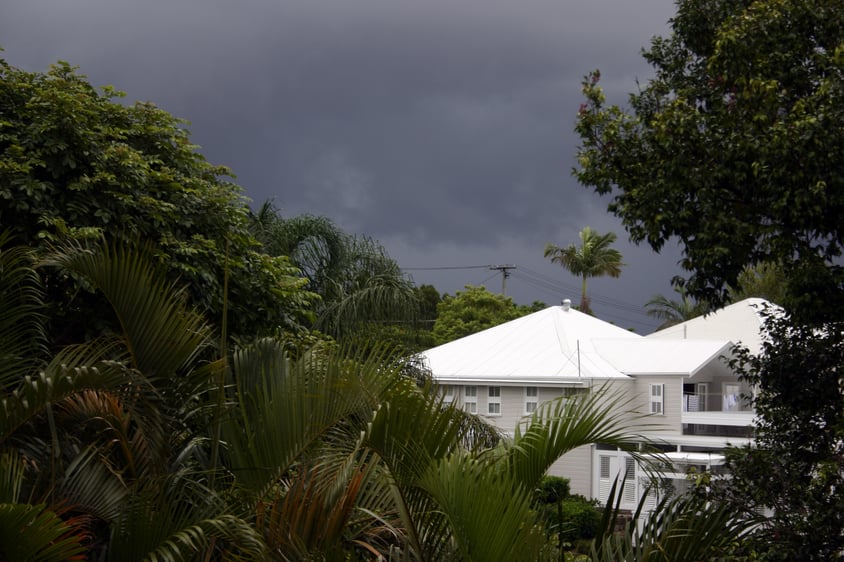
No one wants to find themselves in a situation where they're faced with mounting repair bills because of unforeseen weather events. Weather is completely unpredictable but you can be proactive and take steps to be prepared at this time of year.
Ensure you have adequate insurance
A recent study conducted by Quantam Market Research found that in Australia, 1 in 10 Australian homes are under-insured, and even more surprisingly 74% of renters don’t insure their contents.
Some are also caught out by what is and isn’t covered in a standard insurance policy. For example, water damage is often separate to damage caused by flooding, and flooding isn’t always mandatory to cover in standard policies, so make sure you ask!
Top tip: Make sure your home and contents insurance is up-to-date, covers all extreme weather events relevant to your climate, and is based on a recent valuation of your property. If renting, make sure you insure your contents, as this is not protected by your landlord’s insurance policy.
When building your home, consider weather-proofing
Depending on where you live, you will have a different degree of risk to certain weather events and different zoning conditions. Homes built in flood zones will have restrictions on what can be built beneath the home and how high the home will have to be.
Top tip: Make sure you’re fully aware of zoning and building conditions in your area before you start to build to ensure your home is compliant and safe.
Weather-safe improvements for existing homes
There are several ways that you can weatherproof an existing home to help stave off the worst of the damage during an extreme weather event.
- Install storm windows
Storm windows are windows that can be mounted inside or outside of a home. They can be made from durable glass, or plastic panels or sheets. Apart from acting as insulation against the cold and heat, they can also withstand a lot more pressure from wind and rain, and shatter far less easily than traditional glass windows.
- Clear gutters and vegetation
To prevent the risk of bush fire, make sure all guttering around your home is free of debris and leaves. Also make sure to prune back branches hanging close to your home, and weed and mow a good clearance area around the perimeter of your home to slow down the potential spread of flames.
Have a safety plan when preparing your home for extreme weather
In the event of an emergency, it may not be the safest option to stay in your home, no matter how well-prepared you are. Listen to television and radio broadcasts and follow directions to either remain indoors, or evacuate.
Make sure you have a list of emergency numbers in an easily accessible location, and have an emergency kit with first aid supplies, a torch with batteries, a battery-powered radio, dry, non-perishable food, water and anything else you may need if you have to move quickly.